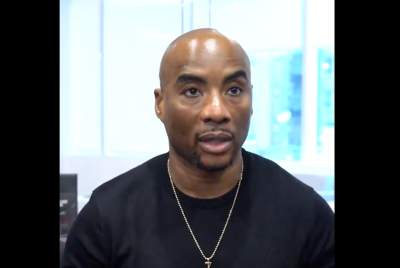Did social networks like Facebook and Twitter really influence the Arab Spring?

After years of repression, intimidation and exploitation, regimes in the Middle East and North Africa became aware they risked being forced out by the people they oppressed.
Tunisia and Egypt did the unthinkable when Ben Ali and then Mubarak stepped down after decades in power; they had finally gotten rid of the dictators.
During the protests, people started to use social networks such as Facebook, YouTube or Twitter, to post footages of demonstrations, of abuses committed by the security forces and also created pages that were used to mobilise the people and organise the protests.
Seeing a surge of users in the Middle East, many observers first jumped at the conclusion that technology is an enabler of revolutions. This time the power to connect people, with real time communications was transformational they insisted, technology was used to influence and even change the power structures of society. However, how sure are we that these social networks really influenced or even enabled the revolution?
The Dubai School of Government has recently published the first report on social networks since the Arab Spring.
It explores the new trends and usages of social networks in the region and is the first report produced by an Arab country over the use of social networks in the region since the revolution.
The report reveals that if social media cannot be alone responsible for the revolutions, major changes about the use of social networks have come into effect since the beginning of this year.
"Until recently, experts theorized about the promises of social networking technologies, including their ability to influence a participatory governance model, grassroots civic engagement, new social dynamics, inclusive societies and new opportunities for businesses and entrepreneurs. A few months into 2011, there is more evidence suggesting that some of these promises can prove realistic," reads the report's overview
The study gathered and analyses data on Twitter and Facebook users in 22 Arab countries, together with Iran, Israel and Turkey. It analyses data on Facebook in the Arab world but moreover, it also compile and analyse data on Twitter.
The reports reveal that compared to 2010, in the first three months of 2011, Facebook grew in the Arab region at an even faster rate, growing 29% in the first three months as compared to 18% over the same period in 2010.
"Countries where major civil movements have occurred have shown exponential growth during and after those civil movements, with the exception of Libya, which has shown a dramatic decrease in number of Facebook users possibly due to the mass exodus of expats during the past few months." the reports reveals.
However one important finding is that female participation in Facebook usage remains glaringly low and the study shows that even though the percentage of female users has risen slightly in the region (to 33.5 per cent ), the percentage of female users globally still remains significantly higher (at 61 per cent ), and is growing at a faster rate.
Also, young people make up 70 per cent of the Facebook users in the region, although the number of users who are over 30 years of age has risen slightly.
Interestingly the report also shows that English is the language of choice for most users in seven Arab countries, while French is the language of choice in five Arab countries, with Arabic the language of choice for most users in three Arab countries.
However, when it comes to Twitter, the GCC counties including Qatar, Bahrain, the UAE and Kuwait dominate the top five countries in terms of both Twitter users and volume of tweets.
The countries just listed however did not experience long phases of protests, except in the case of Bahrain, where the protests were rapidly crushed after a violent repression of the protesters by the government.
Qatar and Bahrain have some of the highest Facebook penetration and Internet penetration rates, and Qatar also has the second largest Twitter user population in the region
The UAE and Kuwait are also two countries with high Internet, Facebook, and mobile penetration rates, while Egypt has one of the lowest Twitter user penetration rates in the region.
As the report then shows evidence that most of the social network are young, and many of them are active and fed up with their government policies they want to be more involved in the politics and decision making.
For decades, most Arab governments enjoyed full control on information flows in societies and most of them tried to resist change, by blocking access to social media websites, the Internet or mobile networks altogether, but this has now changed.
While social network undeniably plays a role in political, societal and economic developments in the Arab region, saying that it enabled the revolutions would go too far. Countries such as Kuwait, the UAE and Qatar are among the top countries using Twitter and Facebook in the region, but certainly not the most revolutionaries. Many of the people that set up Facebook pages for the Arab Spring were well known cyber activists in their country and rightly seized the opportunity to use those networks as tools.
During the uprising in Tunisia, for example, one of the best-known activists on Facebook and Twitter was Slim Amamou, who after Ben Ali's demise went on to become Tunisia's Minister of Sports And Youth.
A lot of events were also funded by western governments or private foundations and were thus not as spontaneous as it was first assumed. Social networks have played a role in the revolution in that it has helped get the information out to the protesters but also to the rest of the international community; however one should not forget that what enabled these revolutions are the people who descended the streets, knowing they might be brutally punished for expressing their views.
© Copyright IBTimes 2025. All rights reserved.





















